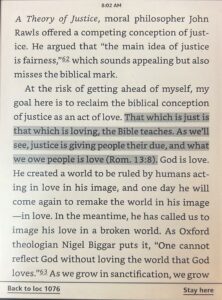Vietnam was a brutally beautiful breaking down of what I thought it meant to love others. I wasn’t aware of it initially, but I had this twisted idea that love was transactional. That if I wasn’t treated well, people weren’t worth my time. That if I was hurt or offended by someone, it was okay for me to distance and wallow in resentment, spite, and unforgiveness. That my bitterness towards others was justified by their lack of love for me. However, I was sitting one late afternoon on the roof of our hostel, journaling and processing a recent argument I’d had with someone on the team, and I realized how heavy the bitterness was weighing on me. With that came another realization that I was the one choosing into bitterness, so that meant I could also choose to be out of it. The next question that came to mind was, “but how?” I found my answer a few days later when a friend challenged me to read 1 Corinthians 13, which talks about what Godly love looks like, and ask myself honestly what aspects of love I struggle to walk in the most. I begrudgingly listened(wrongfully assuming I had learned everything I could from that passage already… typical), and the results shocked me and shook up the pride that I had been walking in. Conviction hit me quickly as I realized my idea of love had strayed so far from how Jesus modeled and commanded us to love. I was filled with guilt in recognizing my hypocrisy and entitlement, and started brainstorming how to move forward in true love for the people around me. I began to pray and ask the Lord to create in me a heart that wants to love others and to see them rightly as He does. It was and continues to be something I pray everyday, and it’s definitely one of the most humbling prayers I’ve ever prayed. This is a journey I’m still on now in Cambodia, and have had even more revelations since about my misconceptions regarding love. One I had the other day was that the biblical definition of justice is to love others. I had just had a conversation with my much-loved leader, Kara Grace, expressing to her the deep anger I feel at injustice and unfairness. She came to me later with a quote from a book she’s reading about reforming the criminal justice system in biblical ways, and my jaw dropped when I read it. It read, “That which is just is that which is loving, the Bible teaches. As we’ll see, justice is giving people their due, and what we owe people is love.” My idea of justice had always revolved more around discipline, consequences, and punishment for wrongdoing, yet here I was reading that true justice is to love? You can probably imagine how stunned I was. The book also referenced Romans 13:8, which is “owe nothing to anyone—except for your obligation to love one another. If you love your neighbor, you will fulfill the requirements of God’s law.” I am still trying to wrap my limited brain around that idea, and still feeling the fresh sting of guilt at how I’ve treated others wrongly thinking that it was delivering justice. I’m thankful for a God who is patient with my misconceptions and skewed ideas, and grateful that He gently reveals them to me and gives me grace when I screw up.
To end this blog, I’ll leave you with a few questions to reflect on: what is your idea of love? In what areas of your life are you justifying not loving others? What ways are hardest for you to show love to others? I encourage you to dig deep for the answers, and perhaps you will be blessed by a shellshocking of what you thought you knew and an awareness of the invitation Jesus is extending to you to walk alongside Him in perfect love.








